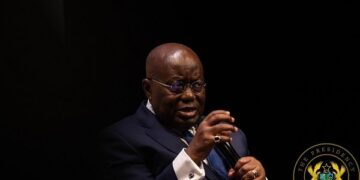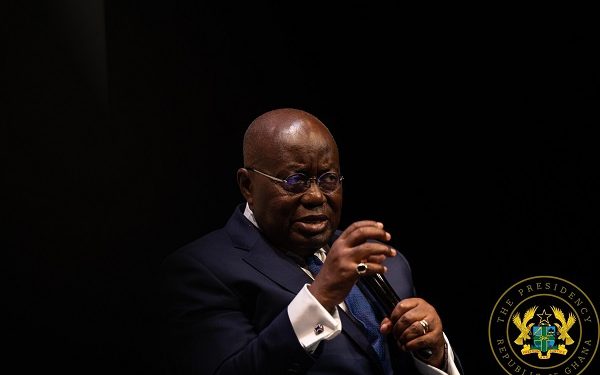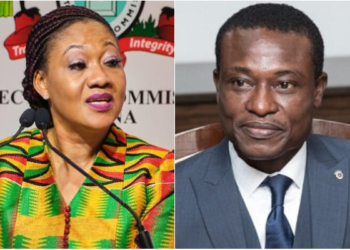President Nana Addo Dankwa Akufo-Addo has defended the banking sector cleanup exercise done by the Bank of Ghana and the Finance Ministry. Akufo-Addo explained that upon assuming office in 2017, his government identified a distressing situation within most banks, which were reliant on what he described as “unsustainable artificial life support”; a situation which required a radical intervention to salvage the entire financial sector.
Addressing attendees at the Bank of Ghana’s year-end cocktail event on December 14, President Akufo-Addo commended the central bank’s exemplary performance over the past seven years. He acknowledged the Bank of Ghana as a reliable custodian of the nation’s assets, specifically emphasizing its role in managing currency, regulating the financial system, and serving as a lender of last resort.
“Over the last seven years, the Bank of Ghana has distinguished itself to the admiration of all well-meaning persons and it has discharged its duties accordingly. It has proven to be a sound banker to the government and a safe custodian of the nation’s precious assets, money. It has been an efficient currency manager, a reliable source and regulator, and above all, a dependable lender of the last resort through the banking sector.”
He added “Probably the most difficult issue my government met on coming into office in 2017 was the state of the banking and financial sector. Many of our banks and financial institutions were in distress and have been kept on unsustainable artificial life support by the central bank. The supervisory departments at the central bank were unfortunately not performing their duties. We were in a desperate situation, and urgent radical measures had to be taken to prevent the collapse of both the financial and banking sectors, the consequences were too dire to come to us. The Bank of Ghana, under the new leadership intervened and restored sanity in the sanity and in the process saved the banks and the funds of 4.6 million depositors. The government found some 21 billion Cedis to fund the cleaning-up exercise which has enabled a more robust financial and banking services sector to emerge better to finance the rapid development of our growth.”
Dr. Ernest Addison, the Governor of the Bank of Ghana, highlighted the central bank’s achievements under his stewardship. He underscored the prudent policy measures taken to stabilize the economy and the financial sector before the disruptive impact of the Covid-19 pandemic. Dr. Addison detailed the resolution of insolvent banks and the subsequent closure of nine banks, 23 savings and loans institutions, and 347 microfinance institutions during the financial sector clean-up.
“At the time I came into office in April 2017, he said, the country had inherited an International Monetary Fund (IMF) programme that was off track. We put it back on track, and successfully completed the programme in April 2019,” he said.
The Governor added: “The issue of resolving the first, two [insolvent] banks came very early on – I had been in office for barely three months. This was a prior action that was required to proceed to the next stage of an IMF board approval for disbursements to Ghana in August of 2017. Then, barely a year after that, based on the work of the supervision department of Bank of Ghana, we had to close five more banks that were insolvent. Contextually, these banks had previously received excessive liquidity support from the Bank of Ghana, some of which was misused. By the end of 2018, we had closed down nine banks, 23 savings and loans institutions and 347 microfinance institutions. That was the context,” Dr Addison narrated.
The nine banks that collapsed during the financial sector clean up were UT Bank, Capital Bank, UniBank, The Royal Bank, The Beige Bank, Sovereign Bank, The Construction Bank, Premium Bank and Heritage Bank.

































